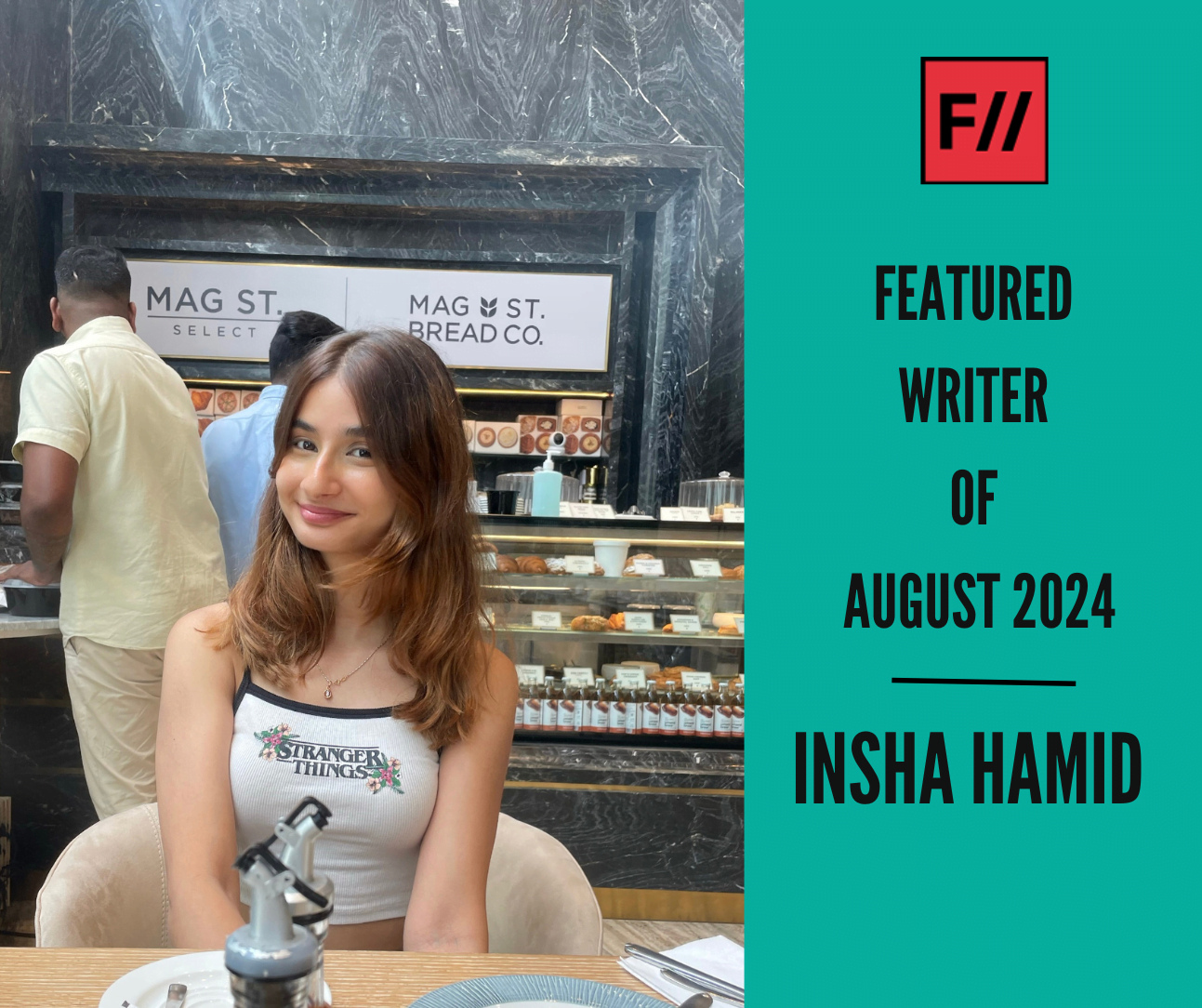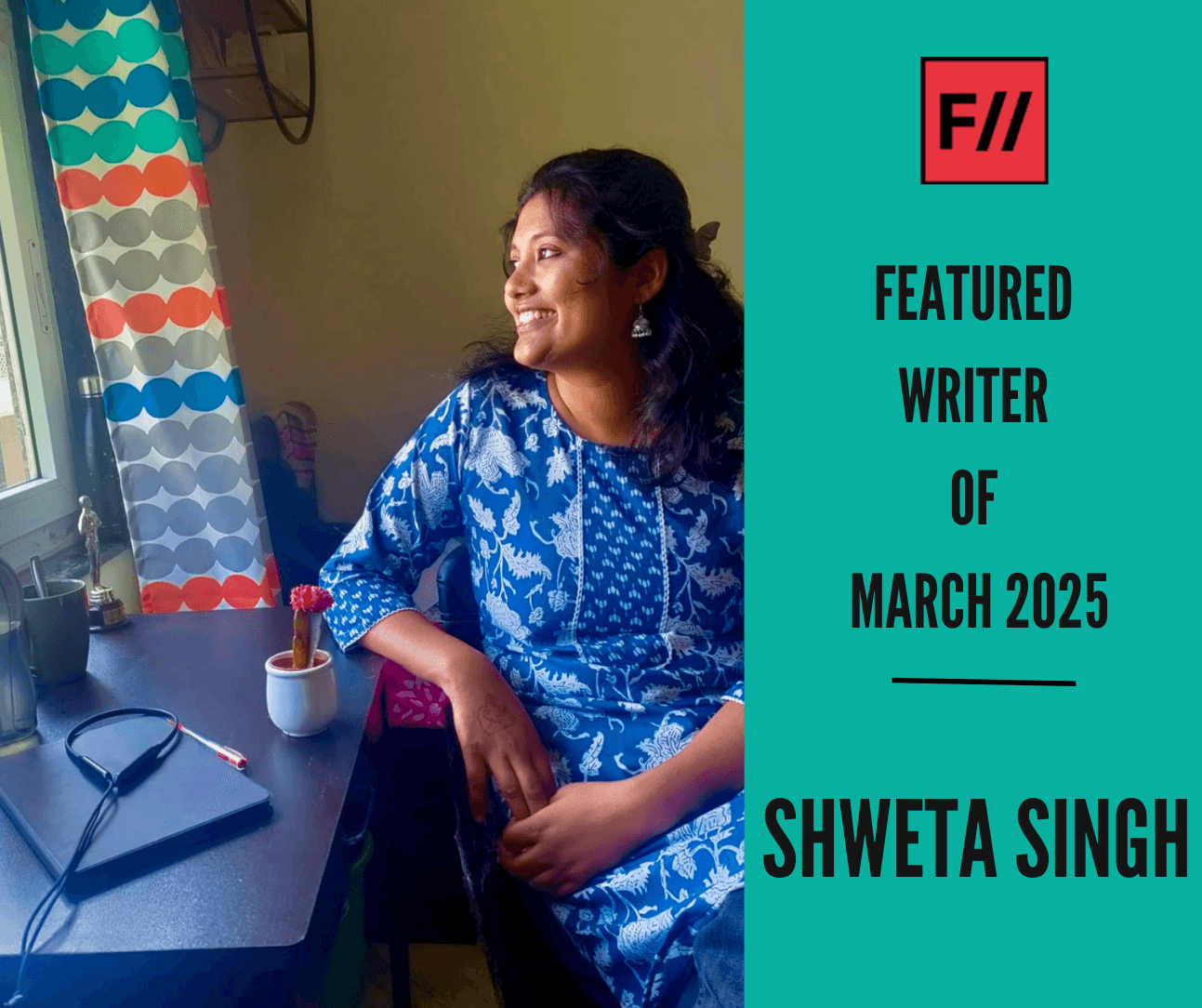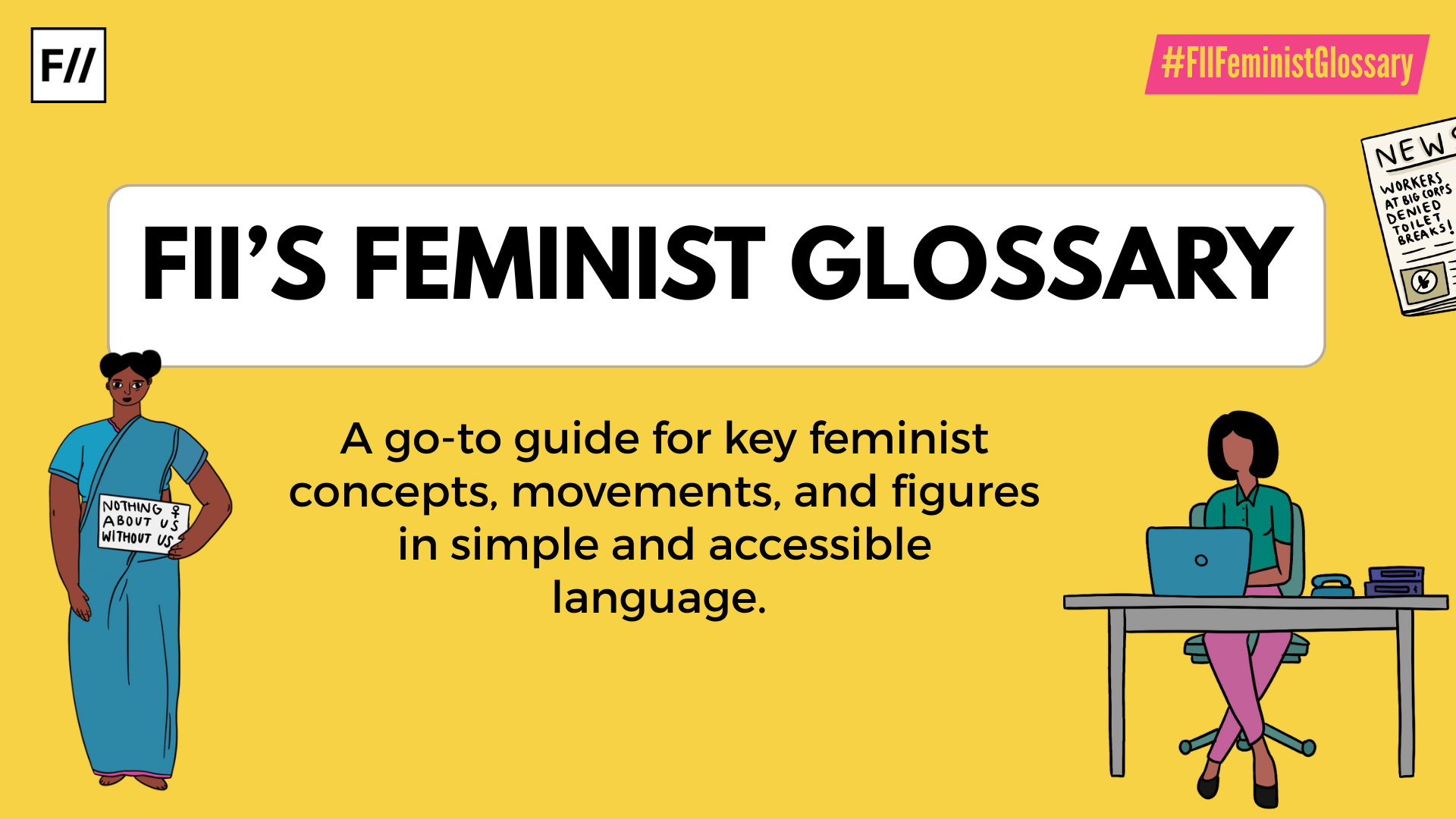We have been featuring the best writers from our writers’ community for their committed contribution to FII, making it what it is today. FII would not exist if not for the passionate and loyal feminist writers’ community that we have steadily been building over the last few years. This August, we feature Insha Hamid.
Insha is an economics major at NMIMS Mumbai. She is passionate about public policy, rural development, and how progress can be found at the intersection of economic development and social justice. She loves the multifaceted nature of economic research because it helps to understand and address the deep-rooted issues of inequality and poverty.
Some of her popular articles include ‘It Ends With Us’: A Box Office Boom And A PR Disaster, Sudan Is Starving: The Politics Of Hunger And Famine among others.
FII: Tell us a little about yourself and what you do
I’m an economics major at NMIMS Mumbai. I’m passionate about public policy, rural development, and how progress can be found at the intersection of economic development and social justice. I love the multifaceted nature of economic research because it helps to understand and address the deep-rooted issues of inequality and poverty.
FIi: How did you become a part of the FII writer family?
I’d always been an avid writer and voracious reader growing up, perpetually tempted to devour any stray sheet of paper that just happened to have words on it. Upon getting swept into the never-ending deadlines and ever-increasing workload of university, I lost the so-called ‘spark’ within myself that made mundane life, well, tolerable. When I heard of Feminism in India, I saw it as my chance to rekindle the love of writing that still existed within me. And oh, am I glad I did.
FII: How and when did you become a feminist?
As a privileged Muslim woman, I hear countless stories about blatant Islamophobia, tales of increasing marginalisation, and statistics and figures about the backward unemployment and literacy rates of Muslim women. During my field visits of the Sayla village in Ahmedabad, where I stayed for a few weeks, my suspicions were confirmed – women were expected to not only shoulder the household burdens of family-planning and day-to-day domiciliary duties, but also bore the brunt of farm labour – sowing, tilling, ploughing – and often ended up victims of domestic abuse if they did not perform these tasks to the point of patriarchal satisfaction.
While working for female liberation, many forget how intersectional feminist issues really are. From the set-in-stone, rigid belief in gender roles to the rural poverty cycle that requires all hands in the field to feed all the mouths in one’s family, female empowerment requires real institutional, grassroots change. Having volunteered at a boarding school to tutor underprivileged Muslim girls, and having conducted an independent research assignment on the impact of external financing on MSMEs in Kenya, which I then presented at a local university, I understand that true empowerment lies at the interplay of many complex issues which we must navigate in order to secure a better future.
FII: Which issues within feminism are close to your heart?
I am particularly passionate about feminism within the rural paradigm, which encompasses the basic tenets of gender economics itself – healthcare, education, access to finance, etcetera. I don’t think it’s possible to isolate gender problems and try to fix them separately. Now more than ever, we must realise how intersectional and interconnected feminism really is, and how every factor of gendered wellbeing ties in with another.
FII: What is your favourite piece on this site that you have written, and your favourite piece on this site that you have read? Why did they strike you?
Sudan Is Starving: The Politics Of Hunger And Famine is quite possibly my favourite piece of work, purely because it sheds light on the forced famine occurring in Sudan that hasn’t received a lot of attention by the media. It was interesting to write and research, as in an era of abundance, it’s crucial to understand the politics behind these ‘scarcities’.
One of my favourite pieces on the site is Culinary Fascism And Cow Politics: How Food Is Used To Marginalise Muslims In India; it’s a succinct, well-written article that delineates the political power of a vegetarian diet.
FII: What do you like to do when not writing about gender and social justice?
When I’m not writing, I probably am lying on the couch with a pea-green face mask on, nose-deep in a non-fiction or philosophical read cosplaying your least favourite sleep paralysis demon. I could also be ransacking the bowels of the internet, taking random pictures with my Canon 6D Mark II, or chugging a flat white with almond milk at record speed.
FII: What do you like about FII and our work? What more would you like to see from us?
I personally love to see contemporary social and political issues analysed via casteist or feminist perspectives. I feel like with the torrents of information overload that prove a current facet of the media, it’s important to have a reliable news source that informs us about current issues as well as see them in a new light. I’m looking forward to consuming more content from marginalised voices, as well as seeing a broader spectrum of issues delivered through social analysis.
FII thanks Insha for her timely and valuable contributions. We are incredibly grateful to have Insha as a part of our writers’ community and appreciate her for her deeply informative writing.
About the author(s)
Feminism In India is an award-winning digital intersectional feminist media organisation to learn, educate and develop a feminist sensibility and unravel the F-word among the youth in India.




